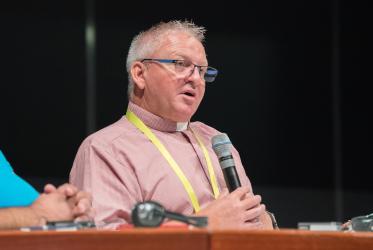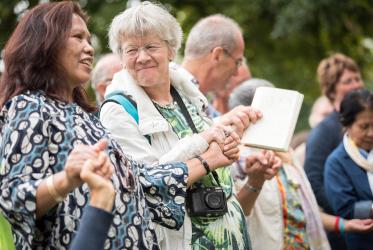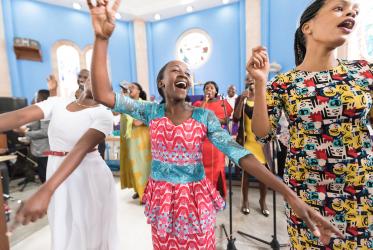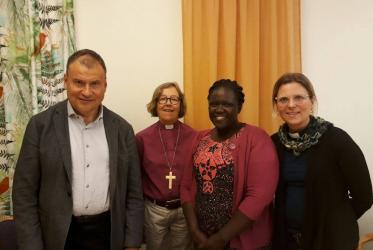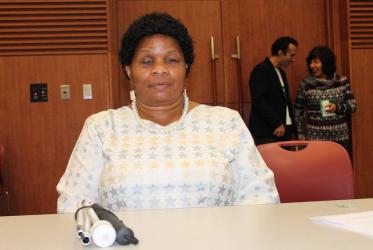Displaying 1 - 18 of 18
Promoting human dignity through art
06 September 2022
Women with disabilities want to belong in churches
31 August 2022
EDAN Pre-Assembly starts with induction of new members
29 August 2022
In a COVID-stricken world, “everyone is important”
23 October 2020
Plans for 11th WCC Assembly build excitement across the globe
18 February 2020
How will the Arusha Call change the world?
20 May 2019
Post-Arusha seminar convenes in Finland
20 April 2018
Nordic churches embrace 'The Gift of Being'
15 September 2017
Churches to be more inclusive of persons with disabilities
16 October 2014
